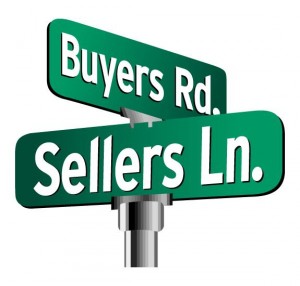5 Tips for Hiring a Business Broker
Posted by Editor in Finance on Oct 30th, 2013 | 0 commentsTo sell business, there are two options for you: 1) to sell business yourself or 2) hire a business broker. Though it’s still possible to sell your company on your own, having a business broker to do all the sales negotiation guarantees a faster sale.
Unlike owners of small-sized businesses, brokers are knowledgeable with years of experience in selling small businesses. They know exactly what is best and what’s not in the buy and sell business industry, making them very helpful in handling business-related tasks such as advertising, business valuation, negotiation, prospect interviews, and due diligence. Hiring a business broker will also allow you, the business owner, to focus more on running the business and increasing its value.

If and when you choose to hire a broker or decide whether your current broker is the best one for you, here are the key points you should address:
1. Certifications Are Not Enough
Business owners think that the more authorizations and certifications the eton associates business brokerage from Singapore has the better broker he or she is. This isn’t necessarily the case. It’s more beneficial to ask the broker what associations he or she belongs to, as reputable brokers often voluntarily join legitimate associations that uphold ethical standards of professionalism and conduct. Also, look for a Singapore broker accredited as a Certified Business Intermediary, which necessitates brokers to undergo an extensive training on certain aspects of business for sale matters.
2. Relevant Business Selling Experience
While most business brokers in Singapore have years of experience, it is important to hire someone with experience in business selling in your local market and specific type of industry. Remember that no two markets and industries are the same, and unless the broker is knowledgeable of what’s important for that particular sector to buy business, he won’t be able to connect successfully and negotiate clearly with them.
Ask and verify how many businesses in the same industry and market the broker has sold in the last two years, and compare the number to different brokers of your choice. If the number of successful business for sale transactions is low, it could mean that the industry you’re in is not his forte.

3. Discuss About the Preparation Method
Ideally, a reputable business broker should voluntarily discuss his step-by-step business selling preparations, such as the vendor and customer lists, preparation of recent tax returns, and essential enhancements that need to be done to improve the physical value of the company. If the broker appears to be in the hurry or doesn’t pay much attention on the preparation process, it might be best to look for another business broker.
4. The Valuation Process
Usually, a business owner will ask the broker for an initial valuation of the business. To fully understand the broker’s estimation, be sure to agree with the broker’s valuation process. Let the broker explain how he came up with that value. Experienced brokers know that pricing your business a bit lower than reasonable value will make business selling a lot faster. Make sure that you’re not overpricing as this will only shoo away potential clients to buy business and drag the selling process for years.
5. Comfortable Rapport
A successful business for sale transaction won’t happen if you’re not comfortable working with him. This could be a bit difficult if your business broker is carrying a large client load, as the possibility of creating a close bond drops dramatically. Your business broker should be someone that you can trust and work comfortably with on a regular basis.


Leave a Reply